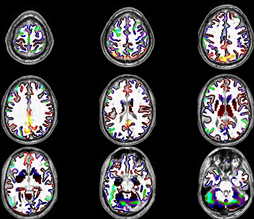Attention A T users. To access the menus on this page please perform the following steps.
1. Please switch auto forms mode to off.
2. Hit enter to expand a main menu option (Health, Benefits, etc).
3. To enter and activate the submenu links, hit the down arrow.
You will now be able to tab or arrow up or down through the submenu options to access/activate the submenu links.
Locator
Contact
Search
Menu
Menu
- MIRECC / CoE
- MIRECC / CoE Home
- Education
- Fellowships
- MIRECC-CoE Awards
- VISN 1 New England MIRECC
- VISN 2 Center for Integrated Healthcare
- VISN 2 CoE - Suicide Prevention
- VISN 2 New York MIRECC
- VISN 4 Philadelphia and Pittsburgh MIRECC
- VISN 5 Capitol MIRECC
- VISN 6 Mid-Atlantic MIRECC
- VISN 16 South Central MIRECC
- VISN 17 CoE - Returning War Veterans
- VISN 19 Rocky Mountain MIRECC
- VISN 20 Northwest MIRECC
- VISN 21 Sierra Pacific MIRECC
- VISN 22 Desert Pacific MIRECC
- VISN 22 CoE - Stress and Mental Health
- CESATE – Seattle
- NCPTSD
- More Health Care
- Veterans Health Administration
- Health Benefits
- Conditions & Treatments
- Wellness Programs
- Locations
- Research
- Special Groups
- Careers, Job Help & Training
- About VHA
VISN 6 > Research > Neuroimaging

Neuroimaging Research Lab
The Neuroimaging Lab primary research area is focused on brain changes in posttraumatic stress disorder. Our second research area is focused on understanding changes in mild traumatic brain injury (mTBI) using diffusion imaging, resting-state functional MRI, and structural imaging to better understand the role of clinical symptoms and mechanism of injury. Our research in PTSD is focused on the role fear, threat, guilt and other emotions along with their interaction with cognitive function such as memory, attention, and executive function. Functional MRI employing cognitive challenge tasks, pharmacological challenges, emotion regulation strategies, as well as structural MRI, candidate gene, genome wide association studies (GWAS), and gene expression are converging methodologies for understanding mechanisms of PTSD. Our lab leads the international consortium workgroup on PTSD Neuroimaging within the Psychiatric Genetics Consortium. We have formulated a blue print to identify replicable genetic associations with brain measures in PTSD at a scope that is unprecedented in the field of traumatic stress. These efforts have triggered a renewed impetus and a sharpened focus on investigating structural and functional brain differences, their genetic determinants, environmental modulators, and investigating the genetic vulnerability to the effects of trauma and the onset of PTSD.Rajendra A. Morey, M.D.
Director
rajendra.morey@va.gov
Mid-Atlantic Information
About Mid-Atlantic MIRECC
Contact
Leadership
Research Labs
Education
Clinical
About Mid-Atlantic MIRECC
Contact
Leadership
Research Labs
Education
Clinical



















